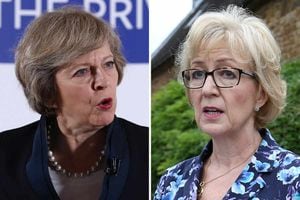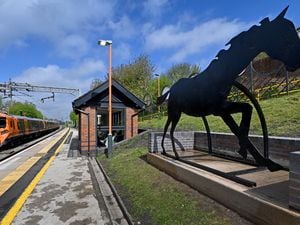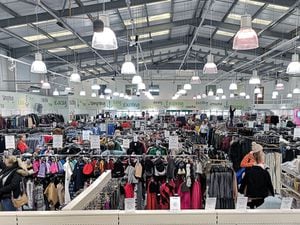New Conservative leader Theresa May to become Prime Minister on Wednesday
Theresa May will become Britain's second female prime minister on Wednesday evening after David Cameron makes his final Commons appearance as premier.

Mrs May has been elected leader of the Conservative Party with immediate effect, but will not become prime minister until Mr Cameron offers his resignation to the Queen following Prime Minister's Questions on Wednesday.
In a statement outside the Commons, Mrs May said she is "honoured and humbled" to become new leader of the Conservatives and praised David Cameron for his stewardship of the party and country.
Mrs May also hailed Andrea Leadsom, whose shock decision to pull out of the Tory leadership race paved the way for her coronation, for the "dignity" she had shown.
WATCH: Theresa May outlines her vision for Brexit at Birmingham campaign launch
The Prime Minister said he was "delighted" that the Home Secretary would succeed him in Downing Street.
Mr Cameron will chair his last Cabinet meeting on Tuesday morning and will take his final Prime Minister's Questions at noon on Wednesday.
In a statement in Downing Street, he said: "We're not going to have a prolonged Conservative leadership election campaign.
"I think Andrea Leadsom has made absolutely the right decision to stand aside and it's clear Theresa May has the overwhelming support of the Conservative parliamentary party.
"I'm also delighted that Theresa May will be the next prime minister. She is strong, she is competent, she is more than able to provide the leadership that our country is going to need in the years ahead and she will have my full support.
"Obviously with these changes we now don't need to have a prolonged period of transition and so tomorrow I will chair my last Cabinet meeting, on Wednesday I will attend the House of Commons for Prime Minister's Questions, and then after that I expect to go to the Palace and offer my resignation.
"So we will have a new prime minister in that building behind me by Wednesday evening."
The leadership contest had been timetabled to run until September but was dramatically cut short after Mrs Leadsom announced she was withdrawing from the race.
Conceding she had too little support among Tory MPs to deliver a "strong and stable government", the Energy Minister said she had concluded that "the interests of our country are best served by the immediate appointment of a strong and well-supported prime minister" and was offering Mrs May her "full support".
Mrs May now faces demands from Labour, the Liberal Democrats and the Green party to call a snap general election, rather than waiting for the 2020 contest envisaged under Mr Cameron's fixed-term parliaments legislation.
Labour election co-ordinator Jon Trickett said he was putting the whole party on general election footing, on the very day when its own leadership contest was kicked off by a formal challenge to Jeremy Corbyn from Angela Eagle.
Mrs May set her face against a snap election when she launched her campaign for the Tory leadership, saying: "There should be no general election until 2020."
But other parties are likely to remind her of Mr Cameron's comments when Gordon Brown succeeded Tony Blair without a vote in 2007.
Calling for an immediate general election, the then leader of the opposition said: "Gordon Brown doesn't have the mandate, he wasn't elected as prime minister, and he should go to the country."
Mr Trickett said: "It is crucial, given the instability caused by the Brexit vote, that the country has a democratically elected Prime Minister. I am now putting the whole of the party on a general election footing. It is time for the Labour Party to unite and ensure the millions of people in the country left behind by the Tories' failed economic policies have the opportunity to elect a Labour government."





